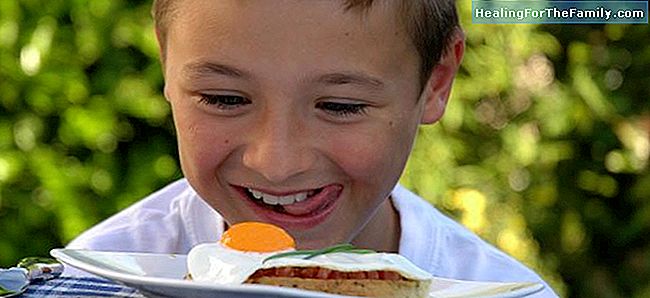How many eggs can the children take a week
The egg is a widely spread food, and is a gastronomic reference in some latitudes, such as in Latin America, where it is consumed daily. It admits all kinds of cooked: frying, cooking, a simple boiling, baking. The egg provides proteins of high biological value, phospholipids, a generous amount of i
The egg is a widely spread food, and is a gastronomic reference in some latitudes, such as in Latin America, where it is consumed daily. It admits all kinds of cooked: frying, cooking, a simple boiling, baking.
The egg provides proteins of high biological value, phospholipids, a generous amount of iron and several useful vitamins, such as B12, which is a nutrient of red blood cells. It is a very complete food.
Questions and answers about eggs in infant feeding

How many eggs can you eat per week?There is a classic saying that "when you are a father, you will eat two eggs". And, in times, it was thought that there was a direct relationship between egg intake and blood cholesterol. This fact is dismissed since 1997. The important thing is to make a varied and balanced diet.
When should it be introduced into the diet? Until a few years ago, in our country it was recommended to introduce the egg between 9 and 12 months of life. The scientific societies of Digestive and Child Nutrition advise since 2008 to be introduced before: after 6 months, for the iron they provide. Recall that the most widespread nutritional deficiency in infants is iron deficiency.
Which eggs are of better quality? Eggs are classified in three ways:
- By type of breeding (ecological, camper, soil, cage). It is not scientifically proven that organic eggs provide more nutritional benefits than the rest. Yes, they bring a better quality of life to the hen.
- Because of the size. The size depends on the breed (the brown ones tend to be larger), the age of the hen (the older they are, the greater the eggs they put) and the nutritional status (the worst nourished hens lay smaller eggs).
- By color: white, brown. There is no nutritional difference.
The thickness of the shell, what does it depend on?The thickness and quality of the shell are important, as it is an insulating element. In fact, it is considered that a resistant shell egg is a higher quality egg. The thickness of the husk is reduced with the age of the hen (it is less thick in the older hens), is inversely proportional to the size of the egg (the larger eggs have a finer shell), and is worse in poorly fed hens .












